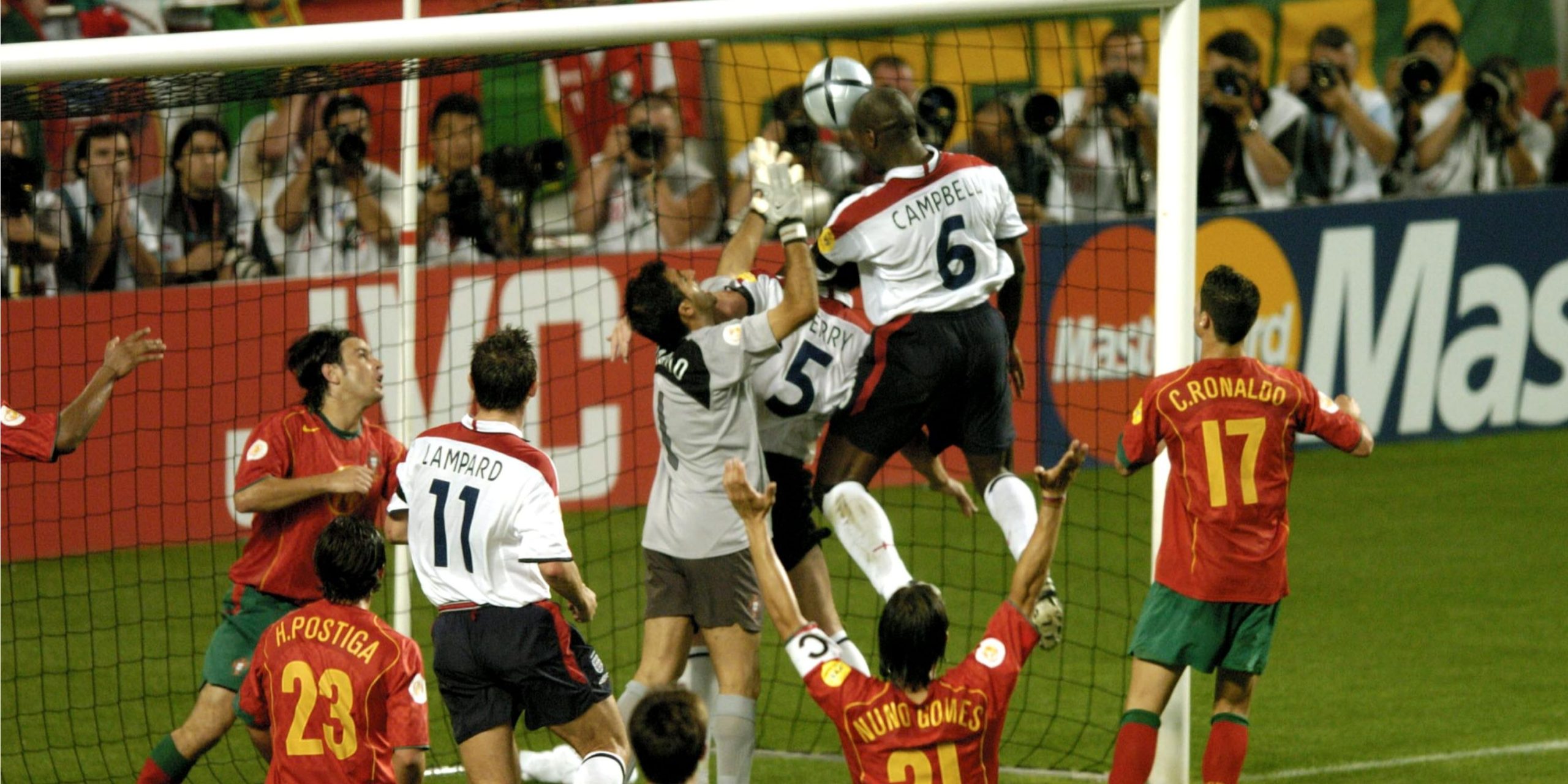Football goes beyond just being a sport to becoming a spectacle of human drama and emotion in the high-stakes arena of the UEFA European Championship, when nations clash and emotions erupt.
Over the years, there have been a number of contentious moments in football history. These incidents, which range from dodgy referee calls to controversial off-field decisions, have also generated discussions among players, spectators and officials.
And with technology now in play these days, there will surely be plenty more controversial moments to come.
With that being said, we have compiled a list of the top 10 most controversial moments in European Championship history…
Every European Championship Mascot – ranked
Euros mascots have been around since 1980, but who is the best?
ByLuke RandallMar 14, 2024 10 Turkey v Croatia quarter-final Crazy extra-time period ends in drama (Euro 2008)
The Euro 2008 quarter-final match between Turkey and Croatia was headed for a Croatian win with a late goal in extra time, only for Turkey to score an even later equaliser, taking the match to penalties, where they won.
The controversy stemmed from the timing of Turkey’s goal, with debates over whether the referee should have ended the match before the equaliser was scored. This incident remains a point of debate regarding timekeeping and referee discretion in ending matches, which is something we have seen in the Premier League and other leagues as well.
(The drama kicks in at 10:21 here…)
9 Marko Arnautovic’s goal celebration North Macedonia incensed by Austrian's gesture (Euro 2020)
Marko Arnautovic appeared to disrespect opponents of Macedonian origin during his celebration following a goal against North Macedonia during Euro 2020.
Arnautovic received a one-match ban from UEFA as a result of the celebration, which some deemed unsportsmanlike and gave rise to accusations of racism. This served as a reminder of the organisation’s opposition to racism and discrimination.
8 Yugoslavia's disqualification Civil war and expulsion led to huge tournament shock (Euro 1992)
Following a strong qualifying campaign, Yugoslavia had earned a spot in the 1992 Euro, which was scheduled to take place in Sweden. With a wealth of talent that has made major contributions to European football, the team was regarded as one of the tournament favorites. But the growing violence inside its boundaries attracted international criticism, and the UN placed economic sanctions on Yugoslavia as a result.
Less than a month before the competition was scheduled to begin in May 1992, UEFA, the organisation that governed football in Europe, came under growing pressure to take action. In the face of mounting worries about the event’s safety and security as well as the political ramifications of Yugoslavia’s involvement, UEFA took the historic decision to banish the Yugoslav squad from contention.
The dismissal occurred as a direct result of international sanctions placed on the Federal Republic of Yugoslavia by UN Security Council Resolution 757. The decision made by UEFA was in line with the larger international campaign to isolate Yugoslavia due to the conflict and violations of human rights that were taking place on its soil.
Denmark, who had placed second in the same qualifying group, was invited to play in the tournament to take up the void left by Yugoslavia’s exclusion. This last-minute addition proved to be a Cinderella tale as Denmark went on to win the title, overcoming Germany in the final and the Netherlands in the quarter-finals.
7 Sol Campbell disallowed goal v Portugal Late header would've sent England to the semi-finals (Euro 2004)
England defender Sol Campbell headed what many English fans believed to be a worthy late winner in the quarter-final matchup against Portugal at Euro 2004. Nevertheless, the goal was disallowed by the referee, who penalised John Terry for supposedly fouling Portuguese goalkeeper Ricardo in the build-up.
It has been disputed whether the referee’s ruling was excessively harsh, which resulted in England’s elimination following a penalty shootout.
Sol Campbell has come out since, talking on the incident.
6 Mario Balotelli racist abuse v Croatia Striker's displays overshadowed by vile fan behaviour (Euro 2012)
During Euro 2012, Mario Balotelli was subjected to racist taunts, particularly during the group stage match between Croatia and Italy in Poland, in which Croatian fans were the suspects.
UEFA investigated the racial insults after taking the matter seriously. After the investigation, UEFA fined the Croatian Football Federation €80,000 (£62,800) for the fan behaviour, which included inappropriate and racist banners being displayed, pyrotechnics being set off and thrown, as well as racist chants directed at Balotelli.
5 Spain's 'offside' goal v Croatia Croatia fume as late winner allowed to stand (Euro 2012)
Another controversial moment in 2012 was the dispute that erupted during Croatia’s match against Spain, leaving players and spectators arguing over the nuances of football’s offside rule.
The dispute started in the 88th minute. After receiving a pass from Cesc Fabregas, Andres Iniesta appeared to be in an offside position, but he calmly squared to Jesus Navas, who hammered the ball into an empty net. The players from Croatia, together with their coach Slaven Bilić, quickly protested the goal, who maintained that when Fabregas made the pass, Iniesta was offside.
The decision was quite close, as evidenced by post-match replays and analysis. Some angles even suggested that Iniesta might have been level with the final defender at the time the ball was played. But as there was no VAR available at the time, the assistant referee’s on-field ruling stayed and there was no chance for a video review.
Spain: Every European Championship campaign
Spain are one of the European Championship’s most successful sides – here is their complete record…
ByStephan GeorgiouMar 18, 2024 4 Booing of the Danish national anthem English fans make for hostile environment in tense semi (Euro 2020)
When England and Denmark played in the Euro 2020 semi-final at Wembley Stadium, English fans booed the Danish national anthem, which caused a lot of controversy and outrage.
This move was swiftly criticised heavily by spectators as well as by those within the stadium. The media and supporters condemned the conduct as “disgraceful” and “unsportsmanlike”, emphasising that it goes against the values of respect and worldwide unity as well as the spirit of the game.
We have to agree.
3 Ronald Koeman's crazy celebration Koeman's shirt swap causes fury (Euro 1988)
One of the most talked-about moments from Euro 1988 was Ronald Koeman’s celebration following West Germany and the Netherlands’ semi-final match, which perfectly captured the fierce rivalry between the two countries.
The incident in question happened after the game when Germany’s Olaf Thon and Koeman were spotted switching shirts. Now, this doesn’t seem like anything crazy, but it was what came after that caused a rift. Television cameras captured Koeman acting as though he was wiping his behind right in front of the Dutch supporters, wearing the shirt that Thon had given him.
Outrage was instantly ignited by this move, which was seen as a deliberate act of disrespect towards the German team and its supporters.
2 Spain banned from playing against USSR Soviets given walkover after Spain forfeit quarter-final (Euro 1960)
One famous instance of politics having a direct impact on sports during the Cold War era is Spain’s withdrawal from the 1960 European Nations’ Cup – the first edition of the European Championship – after being pitted against the Soviet Union.
Spain were scheduled to meet the Soviet Union in the tournament’s quarter-finals but dictator Francisco Franco’s administration stopped the game from being played on Spanish territory. Strongly anti-communist, Franco’s government refused to acknowledge the Soviet Union.
The Spanish Football Federation was forced to exit the competition as a result of government intervention, allowing the Soviet Union to advance to the semi-finals. The USSR defeated Yugoslavia 2-1 in the tournament final in Paris to win the title.
1 Sweden v Denmark match-fixing allegations Convenient result angers Italy (Euro 2004)
Due to claims of match-fixing, the Euro 2004 Group C encounter between Sweden and Denmark caused a great deal of controversy. Italy was eliminated from the tournament with the final score of a 2-2 draw, which sparked rumours and claims that the two Scandinavian nations may have orchestrated the outcome.
Before the game, there was a lot of talk that, regardless of Italy’s performance against Bulgaria in their last group encounter, a 2-2 draw would guarantee that both Sweden and Denmark advanced to the quarter-finals at the expense of Italy. Suspicion and tensions increased during the game, particularly among Italian supporters and the media, as it progressed and reached the controversial 2-2 outcome.
Sweden equalised after Denmark took the lead twice, and the second Swedish goal came late in the game to seal the draw that would see both teams through.
Italian supporters and media expressed their displeasure, criticising the match’s integrity and claiming that the result was too opportune to be coincidental. However, players, referees, and coaching staff from both Sweden and Denmark angrily refuted any accusations of match-fixing, insisting that the game was done honestly and competitively.
After reviewing the game, UEFA also discovered no proof of conspiracy or misconduct on the part of the participating teams, which led to them upholding the outcome.









